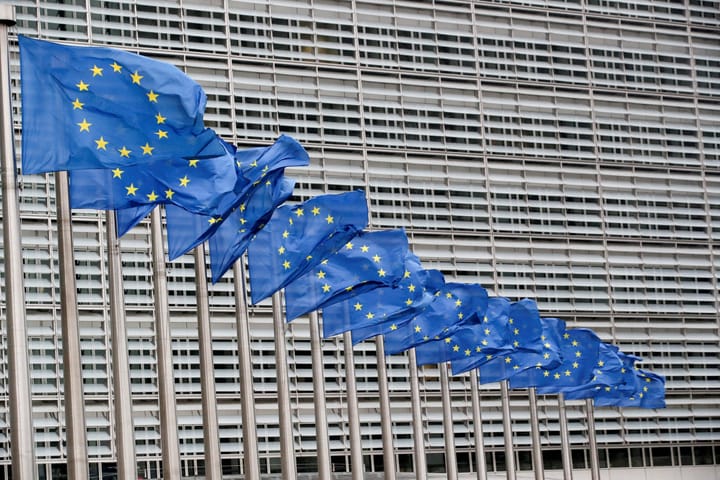Telegram and Signal user numbers soar after WhatsApp rules change

A few minutes every morning is all you need.
Stay up to date on the world's Headlines and Human Stories. It's fun, it's factual, it's fluff-free.
The new policy changes will primarily benefit companies and businesses, which will now be allowed to use WhatsApp’s metadata to produce more targeted advertising and marketing.
A change in the privacy policy of WhatsApp has triggered an exodus of users to the rival messaging platforms Telegram and Signal.
WhatsApp, which is owned by Facebook Inc., requires users to accept recent changes to its privacy policy if they wish to continue using the app. These changes stipulate that the popular messaging app reserves the right to share personal data collected from its users with the broader Facebook network. Conversations, however, will remain encrypted.
The new policy states that “WhatsApp receives information from, and shares information with, the other Facebook Companies. We may use the information we receive from them, and they may use the information we share with them, to help operate.”
WhatsApp, which has been owned by Facebook since 2014, has given its estimated two billion users the option to share data with Facebook since 2016. Following the policy change, this data sharing will now be mandatory.
The change to the privacy policy comes as Facebook faces enhanced antitrust scrutiny and as the company attempts to derive more revenue from WhatsApp.
The new policy changes will primarily benefit companies and businesses, which will now be allowed to use WhatsApp’s metadata to produce more targeted advertising and marketing.
The rule changes do not apply in Europe, where privacy laws are more stringent than in the United States and where regulators have previously expressed “serious concerns” over data sharing within the broader Facebook network.
In the wake of the announced policy change, WhatsApp’s rivals have benefited massively as users have fled the platform in huge numbers.
Telegram, the messaging service founded by Russian billionaire Pavel Durov, has benefited the most so far.
Telegram gained 25 million new users within 72 hours, Durov announced, with the company celebrating the news of WhatsApp’s self-inflicted blow on its Twitter feed.
This is not the first time Telegram has benefited from WhatsApp’s woes. In 2019, Telegram gained some three million new users during a worldwide outage that affected Facebook, Instagram and WhatsApp.
Telegram has not been alone in seeing an influx of former WhatsApp users. Signal, another WhatsApp rival, also saw its user count surge following the company’s announced policy changes, especially after Tesla, Inc. chief executive officer Elon Musk tweeted, “Use Signal.”
Investors seized on Musk’s tweet, unwittingly boosting shares in the “wrong” Signal – a device maker called Signal Advance, Inc. – by some 438%.
Signal, the messaging service, struggled to cope with the sudden uptick in new users, which caused delays in the verification codes needed to register new accounts on the platform.
The government of Turkish President Recep Tayyip Erdogan has also announced that it will stop using WhatsApp and shift to the Turkish encrypted messaging app BiP.
WhatsApp, for its part, has sought to stem the flow of users leaving the platform.
The company published a new FAQ on its website, seeking to address misconceptions over the privacy policy update.
The FAQ states that the “policy update does not affect the privacy” of user messages with other users, but “includes changes related to messaging a business on WhatsApp, which is optional.”
The FAQ also states that neither WhatsApp nor, by extension, Facebook, sees private messages, hears private calls, keeps logs of messages or calls, or sees shared locations or the contents of private groups.
On January 15, WhatsApp announced that it would delay the policy update from February to May in an effort to stop the flood of users abandoning the messaging service.
But Facebook’s less-than-satisfactory record on privacy is likely to have contributed greatly to the reaction witnessed to the WhatsApp policy change.
The controversy has also arisen at a time of heightened sensitivity, among some circles, to perceived “free speech” on big tech platforms.
The banning of President Donald Trump and other supporters from numerous social media platforms for inciting the violent events at the US Capitol on January 6 has led mostly conservative figures to bemoan the lack of “free speech” and the prevalence of “censorship” on platforms such as Facebook, Twitter and elsewhere.
President Trump’s son, Donald Trump Jr., posted a video online in which he called for Elon Musk to create a social media platform of his own for his father to use in the wake of his banning from most social media.
For WhatsApp, a platform for whom privacy has long since been a central feature, it is unclear whether efforts to stop the bleeding and convince users to return will be effective, or whether the boost Facebook has given the messaging app’s rivals will be permanent.
Have a tip or story? Get in touch with our reporters at tips@themilsource.com




Comments ()